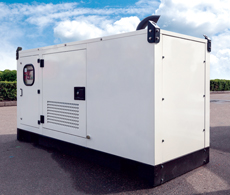
Florida Gov. Rick Scott signed bills into law Monday requiring assisted living communities and nursing homes in the state to have emergency generators. Legislators in Oklahoma are considering similar requirements for assisted living.
Scott, a Republican, asked for the Florida legislation following the September deaths of eight residents of a Hollywood, FL, rehabilitation facility after a power outage related to Hurricane Irma knocked out the facility’s air conditioning. Six additional residents of the facility later died, and a medical examiner ruled that 12 of the deaths were homicides caused by environmental heat exposure.
“As we near the 2018 hurricane season, families can now know the facilities responsible for caring for their loved ones will have the resources needed to be fully prepared ahead of any potential storms,” he said Monday in a statement.
The new assisted living law requires each community to have a backup power source that can maintain an air conditioning system during a power outage. Air temperature in the community must be maintained at or below 81 degrees Fahrenheit. The backup power source can be portable but must provide at least 20 square feet of cool space per resident, calculated based on 80% of the community’s licensed number of beds. Communities with fewer than 17 beds also must have 48 hours worth of fuel on hand, and larger ones must have 72 hours worth of fuel.
Assisted living communities must comply with the new law by July 1, although they may seek extensions to Jan. 1.
Nursing homes are subject to similar requirements.
The governor said that Florida is one of the first states in the country to require emergency generators at long-term care communities, and now Oklahoma may be poised to join the Sunshine State.
HB 2537, introduced by Oklahoma Rep. Tammy West and Sen. Tom Dugger, both Republicans, would require all assisted living communities in the state to have at least 96 hours of “alternate sources of energy sufficient to maintain facility temperatures through the operation of existing heat and air conditioning systems to protect resident health and safety and for the safe and sanitary storage of food, medicines and other necessary provisions” by July 1, 2021. Any assisted living community newly licensed on or after Nov. 1, 2018, would be required to meet the specifications upon licensure.
The bill passed 78-8 in the Oklahoma House of Representatives in mid-February and has had two readings in the Senate, where it has been referred to committee.
AARP Oklahoma has identified the measure as a legislative priority, noting that nursing homes already are subject to federal requirements.
“Given the acuity of care being provided in assisted living centers, it is time that preparation against natural disasters be included in licensing requirements,” the organization said.



